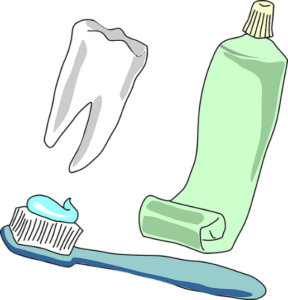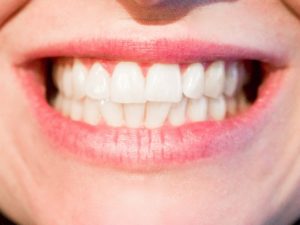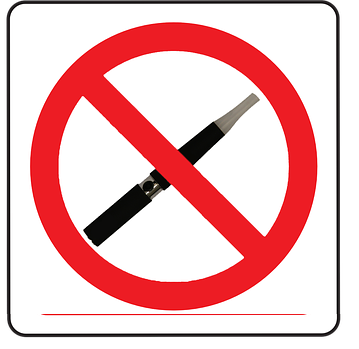Dentist in Gulfport
 Did you know your oral health can impact your overall health? We’ve compiled a list of 5 tidbits about your teeth and oral health.
Did you know your oral health can impact your overall health? We’ve compiled a list of 5 tidbits about your teeth and oral health.
Say Cheese
Cheese has been found to promote dental health by helping prevent tooth decay. The calcium and phosphorus found in cheese help neutralizes acid in the mouth. Acid can create dental erosion, which can cause decay that may require filling. Cheese creates a protective film around teeth and helps remineralize the enamel.
Keep Smiling
Your smile can make a difference. Studies have found that 50% of people consider a smile the first facial feature they notice. One study found that 88% of us remember people with beautiful smiles whenever we meet new people. This means attractive smiles are key to being more noticeable and remembered.
Toothbrush Time
Don’t forget to replace your toothbrush at least once every three months. You should get a new toothbrush after recovering from any sort of viral infection, flu, or cold. You are more likely to be re-infected if these bacteria implant themselves on the bristles.
You’re Unique
In your lifetime, you only get two sets of teeth— baby teeth and permanent teeth. It is important to take proper care of your permanent teeth. Did you know that no two people have precisely the same set of teeth? Your teeth are as unique as a fingerprint. This is the reason teeth are used by investigators for identification. Your tongue also has a unique print, though it is not commonly recorded.
F.Y.I on Floss
Floss is a lot more useful than you may think. If you skip out on your daily flossing, you can miss cleaning up to 40% of your tooth surfaces. Flossing can also help prevent gum disease by removing plaque near the gum line. Floss has other alternative creative uses. The next time you are looking for a fun holiday project, grab some dental floss and a handful of cereal to string for the tree. Floss works well for repairing a bead necklace too!
Bonus Fact: Health professionals are rated among the most trusted people in the U.S so make sure to call our dentist and make an appointment today!
Gulfport Dentist
15382-A St. Charles Street
Gulfport, MS 39503
(228) 832-5300



 Discomfort and pain in your jaw, clicking while you talk or chew, and swelling on the sides of your face can be caused by Temporomandibular Joint Disorder (TMD). TMD can make talking and eating both painful and uncomfortable. Our team understands how TMD can make your day a challenge. We’ve compiled a list of helpful tips for managing TMD discomfort, but also encourage you to schedule a visit to see us for a full evaluation.
Discomfort and pain in your jaw, clicking while you talk or chew, and swelling on the sides of your face can be caused by Temporomandibular Joint Disorder (TMD). TMD can make talking and eating both painful and uncomfortable. Our team understands how TMD can make your day a challenge. We’ve compiled a list of helpful tips for managing TMD discomfort, but also encourage you to schedule a visit to see us for a full evaluation. If you are missing one or more teeth, our dentist may recommend a dental bridge. To help you understand what to expect, we’ve assembled a short guide to bridges.
If you are missing one or more teeth, our dentist may recommend a dental bridge. To help you understand what to expect, we’ve assembled a short guide to bridges. Teeth grinding, known as bruxism, is a habit many get into without even realizing it. Grinding your teeth can be damaging for several reasons. If you or your child have been struggling with teeth grinding, make an appointment to see us. We will assess the damage to the teeth, as well as assist you in addressing solutions. Here’s what you need to know about teeth grinding.
Teeth grinding, known as bruxism, is a habit many get into without even realizing it. Grinding your teeth can be damaging for several reasons. If you or your child have been struggling with teeth grinding, make an appointment to see us. We will assess the damage to the teeth, as well as assist you in addressing solutions. Here’s what you need to know about teeth grinding.  The American College of Prosthodontists reports that about 178 million American adults are missing at least one tooth. Nearly 40 million have lost all of their permanent teeth.
The American College of Prosthodontists reports that about 178 million American adults are missing at least one tooth. Nearly 40 million have lost all of their permanent teeth. To help patients and visitors gain a better understanding of cosmetic dentistry, we decided to share some of the most common questions we are asked.
To help patients and visitors gain a better understanding of cosmetic dentistry, we decided to share some of the most common questions we are asked. X-rays provide useful visual data for dentists to utilize when treating you. Occasionally, guests to our office ask about the radiation from x-rays and the dangers associated with high-exposure. Rest assured, a dental x-ray is one of the safest medical imaging procedures there is. Here’s what you need to know about getting a dental x-ray.
X-rays provide useful visual data for dentists to utilize when treating you. Occasionally, guests to our office ask about the radiation from x-rays and the dangers associated with high-exposure. Rest assured, a dental x-ray is one of the safest medical imaging procedures there is. Here’s what you need to know about getting a dental x-ray. Your gum health may have an impact on your cognitive function. One recent study found a correlation between gum disease and increased cognitive decline for people living with early stages of Alzheimer’s disease. While more studies are needed to make a definitive connection, this study illustrates the importance of continuing the conversation about oral health and its impact on your entire body.
Your gum health may have an impact on your cognitive function. One recent study found a correlation between gum disease and increased cognitive decline for people living with early stages of Alzheimer’s disease. While more studies are needed to make a definitive connection, this study illustrates the importance of continuing the conversation about oral health and its impact on your entire body. The hazards surrounding vaping are not entirely clear. More research is needed in this area, but a recent study indicates that e-cigarette vapors could be damaging to your mouth. Here’s what you need to know.
The hazards surrounding vaping are not entirely clear. More research is needed in this area, but a recent study indicates that e-cigarette vapors could be damaging to your mouth. Here’s what you need to know. Blood thinning medications are helpful in regulating your body to prevent heart attacks, strokes, and other serious issues. However, if you are scheduled for oral surgery, it is vital that our oral surgeon is aware of all medications you are using.
Blood thinning medications are helpful in regulating your body to prevent heart attacks, strokes, and other serious issues. However, if you are scheduled for oral surgery, it is vital that our oral surgeon is aware of all medications you are using.

